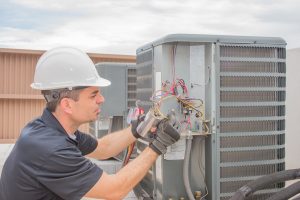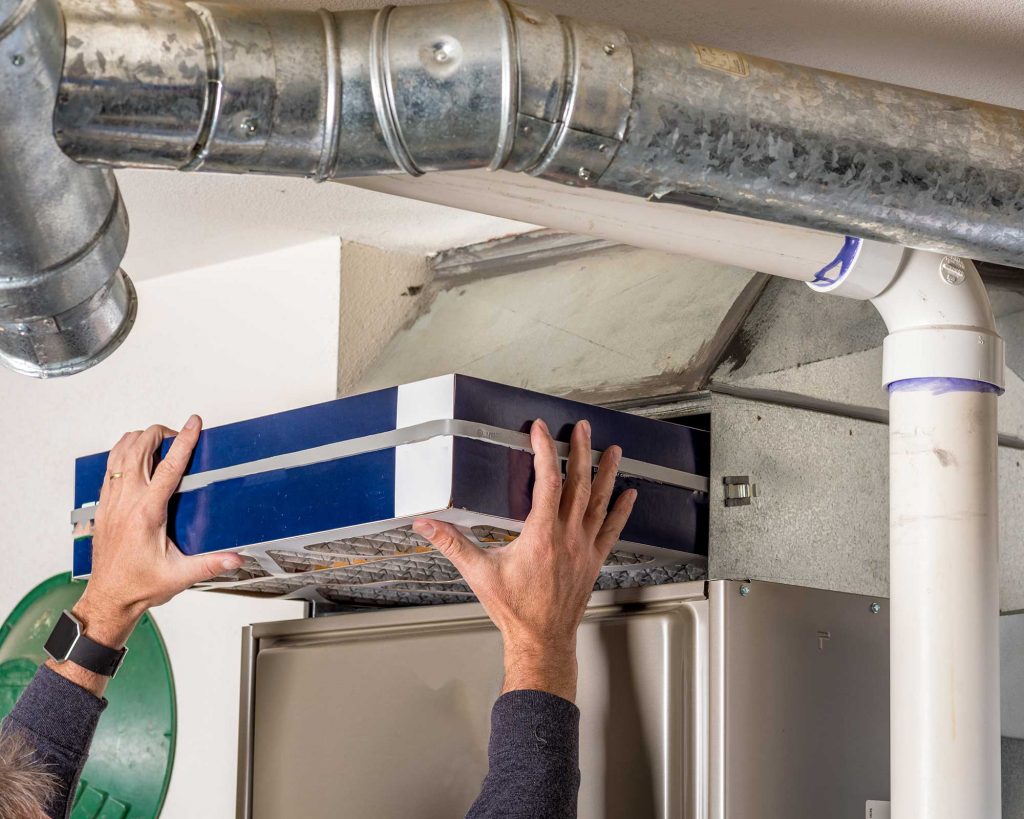
You’d think freezing is great with an AC, and it’s going to produce cold air. Sadly, it’s the absolute worst thing for your air conditioning and warrants an AC Repair. An AC works by means of a standardized temperature, pressure and airflow control. If any of these things fall out of control, you can overclock and freeze the refrigerant system that creates the cold air, without actually making the air any colder.
Either a frozen AC blows warm/cool air or nothing at all. You’re wondering why this might be true, of course, and we’re here to explore the answer in-depth along with what to do about it.
Why Your AC Makes Cold Air The coil filled with extremely cold refrigerant is the key element in an AC. The refrigerant actually needs warm air to flow through them when it is triggered. This will cool the air and keep the coils warm enough not to freeze over. The indoor coil extracts heat from the inside on a straight cool device and transfers it to the outside coil using the refrigerant that carries the heat to the outside. That’s why your outdoor device feels warmer than the outside temperature, blowing visibly hot air. Because the machine sucks the heat out of your indoor air and moves the extra heat outdoors.
Through controlling stress through the refrigerant connection, it does this. But if something stops the warm air from blowing over the coils or if the pressure in the coils is wrong, the coils can get too cold and freeze up quickly. The reasons why your AC inside can become a frozen icebox are either connected to airflow, pressure, or both. This will require your Baytown HVAC specialist to come out and repair your air conditioning. Let’s cause-by-cause break it down.
If moisture is high in the air, this only makes the freezing issue worse as ice begins to form on the coils and continues to cover them with cold so that any available warm air can not enter the coils to warm them up. The more moisture in the water, the more ice can build up. Like an old chest freezer, it protects the inside of the AC and crawls the copper pipes. During the Monsoon season, when homeowners start to see ice crawling up the copper piping all the way to the outdoor compressor, that’s when the majority of people will call with a frozen AC.
1) Airflow shortages The single most common cause your AC can freeze is airflow shortages. This can be triggered by multiple malfunctions ranging from the blower engine to the intake of air. If anything in the airflow system prevents warm air from running over the coils while the compressor continues to flow, the AC will begin freezing and with time this will only get worse.
Collapsed Duct
Your ducts are how air flows through the house, so if something blocks the duct, air will naturally stop flowing properly, which can block airflow to the coils. Even if the rest of the system runs smoothly, a collapsed or blocked air duct (or more than one duct) in your home can cause your AC to lose airflow. The coils start to freeze because the warm air is not sufficient to keep them at the optimum temperature.

Poor Blower Motor
In this process, of course, the blower motor matters a lot. Whether it is the spinning motor itself or the run condenser of the blower motor, if the blower fan starts blowing, the air will stop flowing over the coils fast enough. And the coils start freezing once that air stops blowing. If your blower motor is failing, you may hear irregular or rattling sounds from your AC.
Electricity
Sometimes the guilty party is home electricity. AC’s need a variety of high-power components to run electricity, which is why air conditioning is a central part of your summer power bill. If your fan or blower engine is under-powered while the compressor continues to run, it creates the same issue of freezing airflow that we spoke about.
Clog
Last but not least, there’s the air intake tube. Your AC air filter shouldn’t be easily ignored, though it’s all too easy to forget. The filter sits between your dusty home vent and the AC itself, preserving clean air (and compressor coils). But it becomes a clog instead of a pathway when it fills up with dust, like any filter. If your air filter is clogged, the airflow slows down to a crawl and there is no blower efficiency that can keep your coils from freezing.
2) Dust Blocking coils Running without an air filter, a low-quality filter or a filter that does not adjust the filter is at another threat. Dirt. AC coils are often damp on the cold surface from moist air condensing. This builds up into a thick blanket as dirty air blows past damp coils. The powder serves as an insulator, producing an excessive amount of freezing cold by trapping the air within the coils themselves. It combines with more moisture that builds on the dust and can produce the effect of the ice-box.
3) Low on Refrigerant, The refrigerant is eventually there. Because of how your AC handles pressure, the refrigerant level inside your coils matters a lot. Ever wonder why a compressor is named the large machine outside? Upon releasing the energy it absorbs, it compresses the refrigerant. Warm air transforms or “flashes” liquid coolant into a gas that heats up and reduces pressure. Then, well, the compressor compresses it back into a fluid and pumps it back into the house toward the blower fan.
Nonetheless, the “flashing” happens too early due to a lack of pressure if there is not enough refrigerant in the process. At that moment, the flashing process creates sufficient cold to condense moisture on the coils to freeze it instantly. The earlier the flashing happens, the more ice builds up until the AC is filled and the copper pipes are creeping up. That’s why maintaining the right levels of refrigerant in your AC system is so critical.
What to do if you find ice on your outdoor unit? Eventually, when you catch your AC blowing warm air and ice building near the outdoor unit, here is what you can do. Your first move is to turn off the thermostat if you see ice forming around or near any part of your AC. Stop asking for incoming cold air. This will turn off the compressor and allow the coolant to stop soldering.
Use the fan while the AC is off. Adding airflow can help melt the ice and reduce the problem.
Next, immediately call an AC repair service. This is a dangerous situation that, unless the trigger is identified and fixed, will permanently damage the system. Let your company know on the phone that you are calling because you are freezing up your AC. This is an urgent call and will allow them to rapidly prioritize their operation.
Test or switch the air filter if it’s full. If this was the problem or part of the problem, notify the technician when they arrive so they can assess the problem better and fix it better. Don’t be afraid. You can fix a frozen AC, particularly if you turn off the compressor and quickly call for service.